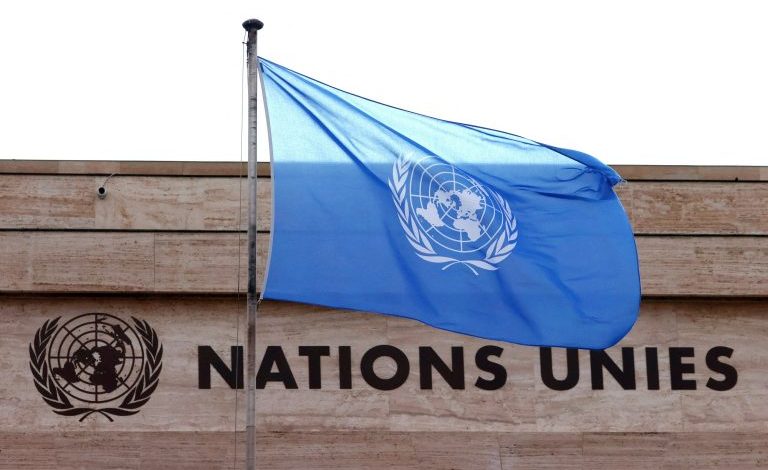Geneva Talks: On the way to Ending the War

Sudan Events – Abdel Basset Idris
Attention turned to the Swiss capital, Geneva, which is hosting indirect talks between the SAF and Hemeti’s militia under the auspices of the United Nations UN .
International follow-up:
The UN Security Council announced its welcome for the indirect talks taking place in Geneva, and called on international efforts to join these efforts and not to interfere externally, which stirs up the conflict in Sudan, while Egyptian Foreign Minister Badr Abdel Aati said that ending the war and ceasing fire in Sudan depends on not interfering externally and bringing in weapons.
UN Sponsorship:
The talks are being held under the auspices of the United Nations UN , led by the Secretary-General’s Special Envoy to Sudan, Rattan Lamamra.
The official spokesperson for the UN Secretary-General said that Lamamra is conducting his meetings between the two parties in implementation of the UN Security Council’s decision to continue his good offices, and despite the announcement of reaching something, the official spokesman stressed the importance of continuing the dialogue between the two parties in Geneva.
The goal of the talks:
The talks in Geneva aim to reach a ceasefire agreement that will enable the United Nations UN and relief agencies to deliver humanitarian aid to those affected by the war.
The United Nations UN said that thousands have been killed in the conflict and that the specter of famine threatens Sudan.
The Director of Operations at the United Nations Office for the Coordination of Humanitarian Affairs, Edem Worsono, said that 14,600 people, including women and children, were killed and 26,000 others were injured in the war, noting that the war has displaced more than 6 million Sudanese from their areas, while about 2 million Sudanese have fled to neighboring countries.
Last week, UNICEF said that 8 million Sudanese children are suffering from hunger and disease as a result of the war in Sudan.
Optimism about the agreement:
Despite the difficulty of the ongoing talks, a number of diplomats expressed their optimism in an interview with (Sudan Events ) about the possibility of reaching a ceasefire for humanitarian purposes.
Al-Burhan’s conditions:
In conjunction with the start of the talks, the President of the Sovereignty Council TSC and Commander-in-Chief of the SAF , Lt Gen.Abdel Fattah Al-Burhan, set new conditions.
After he insisted on the conditions for the militia elements to leave citizens’ homes and stop their attacks on villages and looting and displacement of citizens as a basic condition for resuming negotiations, Al-Burhan said that no ceasefire agreement would be signed unless the militia committed to these conditions and left the cities of Al-Geneina, Zalingei, Madani and Singa. Earlier, Al-Burhan announced his refusal to sign a unilateral ceasefire agreement in Al-Fasher in light of the militia’s attack on the city, bombing residents and destroying service and medical facilities, calling on mediators to talk to the militia to leave citizens’ homes and stop its attacks.
Invitation and references:
The United Nations UN invited the government and the Rapid Support Forces RSF to negotiations in the Syrian capital, “Geneva”, and the (Sudan Tribune) website said that the invitation aims to hold indirect negotiations next week, to discuss facilitating the delivery of aid to those affected by the fighting and protecting civilians.
The Special Envoy of the Secretary-General of the United Nations UN Ramtane Lamamra, sent a letter to the President of the Sovereignty Council TSC and Commander-in-Chief of the , Lt. Gen. Abdel Fattah Al-Burhan, on June 26, proposing to send a limited high-level delegation to Geneva on July 10, to begin discussions with the Rapid Support Forces RSF under the auspices of the United Nations UN .
According to the letter, which Sudan Tribune has reviewed, the negotiations will focus on the measures that must be taken to ensure the distribution of humanitarian aid to all Sudanese people in need, in addition to examining options to ensure the protection of civilians.
Government conditions:
While Hemeti’s militia announced sending its delegation to Geneva, the platform of the official spokesman for the Sudanese government said that the government had agreed to send a negotiating delegation to Geneva.
The official spokesperson affirmed that there is no need for a new negotiating platform other than Jeddah platform, affirmed that the government will not accept any entity as an alternative to its agencies to organize humanitarian aid.
Arbitrary measures:
Humanitarian expert Marwa Mohamed Abdel Rahim told (Sudan Events )hat there is great importance in reaching a ceasefire agreement to provide humanitarian aid, and she noted that the humanitarian crisis resulting from the war has reached a late stage, which necessitated all this international attention. Marwa believes that the government and its delegation in particular are required to demonstrate their commitment to international and humanitarian law in accordance with their declared intentions of being ready to work with the United Nations UN to facilitate the passage of relief.
She warned that if the results of the Geneva talks do not reach a positive result, this may push the Security Council to resort to other harsh options.
Marwa noted that the government has facilitated and opened all crossings except the border crossing with Chad, and that it must focus on guarantees that preserve the security and sovereignty of the country.
Red Lines:
In turn, the military expert, retired Maj. Gen. Mohamed El-Amin Ismail, told (Sudan Events ) that there are red lines that the government negotiator must not allow to be crossed, indicating that previous experiences in dealing with the United Nations (UN )and relief agencies have shown that humanitarian aid has been used to bring in weapons and prolong wars such as the war in the south. Ismail believes that the humanitarian operation must include removing the militia’s bases and their immediate exit from police headquarters and stations so that they can carry out their duties in maintaining security and arresting criminals, including those who will threaten relief convoys.



